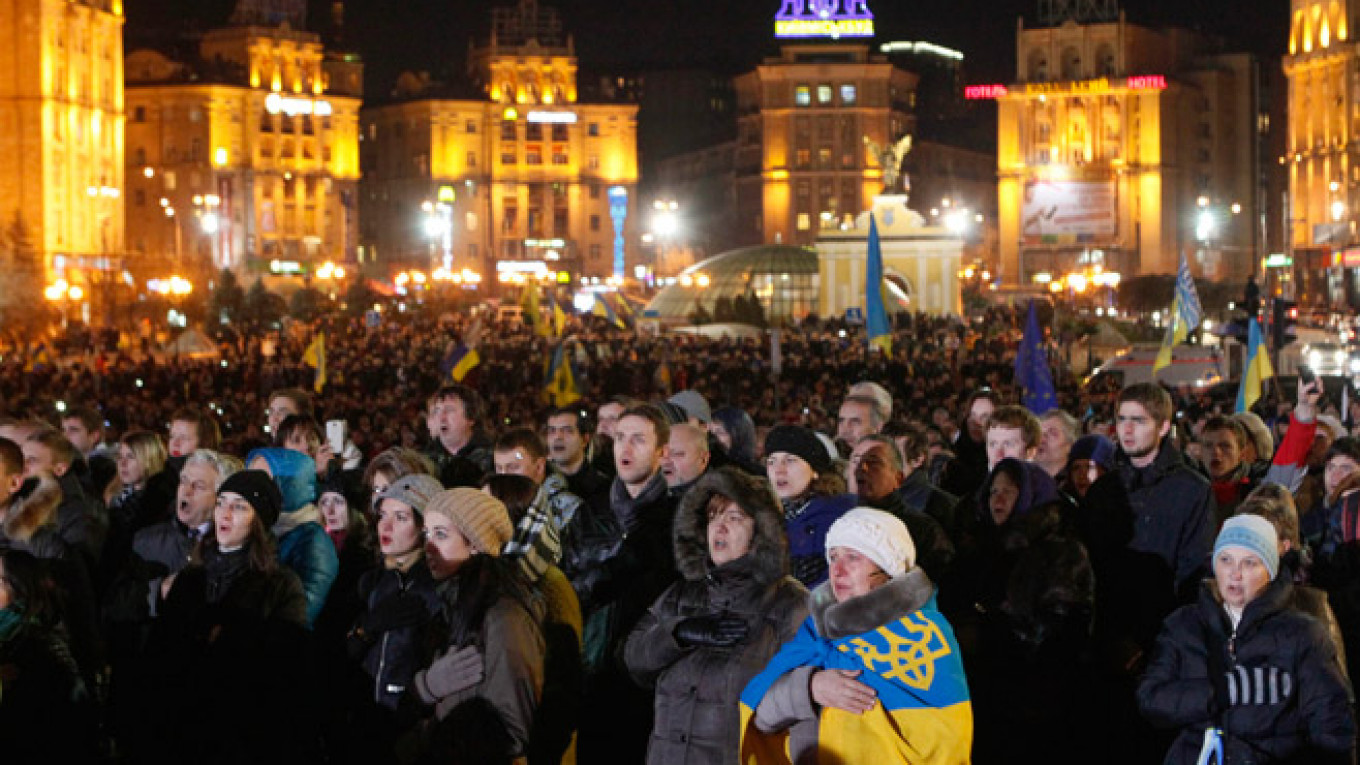When Russia unleashed its propaganda war against Ukraine, most observers assumed that the numerous Russian-Ukrainian marriages and other close transborder familial ties would act as a deterrent to Moscow's attempt to drive a wedge between the two societies. They thought that relationships formed since childhood, common sense and life experience would protect people from the propagandistic onslaught.
They would band together to fend off the propaganda machine, speak out on social networks, and phone each other to reaffirm that any mean-spirited attempt to defame the Ukrainians would only strengthen the relationship between both countries. Unfortunately, that is not what has happened.
Russians with relatives in Ukraine not only failed to protest against Moscow's campaign of blatant lies — they unhesitatingly believed it. Why? It turns out that, in the overwhelming majority of such families, relations between distant and close relatives were already on the verge of collapse.
For those Russians who were already looking for a way to cut off communications with their less prosperous Ukrainian relatives, Moscow's propaganda provided the perfect pretext. Unfortunately, a great many people cynically exploited this opportunity.
As a rule, those Ukrainians who moved to Russia became financially more successful and urbanized and enjoyed greater prospects for their children. They found it irritating to have to share their newfound wealth with the less fortunate friends and family members they left behind.
Cutting yourself off from close kin without good cause and without the approval of society is a violation of the generally accepted rules of decency. However, I admit that I have stopped communicating with my Ukrainian relatives. I am sick of keeping up the charade: I don't like paying for expensive international calls, I don't want to invite them to visit or lend them money, and I don't want to visit them. Such behavior is taboo to most Russians. They know that cutting off ties with "blood relatives" is reprehensible.
Successful Russians got just the excuse they were looking for to jettison those hangers-on when the Russian media began branding Ukrainians as Nazi sympathizers who crucify innocent Russian children. No sooner had state media begun proclaiming this heretofore unknown fact and backing it up with fabricated video footage than intra-family scandals erupted that ended first in temporary ruptures and finally in a decisive: "We don't know you anymore."
This is like the Soviet practice of denunciation that flourished prior to World War II. People denounced neighbors, acquaintances, relatives and colleagues as a convenient way of getting rid of them. The state used society's accumulated irritation for its own purposes, providing citizens with an understandable mythology of accusation peppered with such effective catchwords as "enemy of the people," "Japanese spy" or "White Guard officer."
The simple truth is that anyone who wanted to remove a certain individual from their life could avail himself of this opportunity — a "service" that the state essentially imposed on the people.
Many Russian families resent their Ukrainian roots, and the moment the opportunity presented itself, they severed those ties with the idiotic shout: "Shove off, you Nazi scum!" They can offer no other acceptable explanation for their own behavior, and to admit the truth would elicit feelings of shame.
This suppressed feeling of shame is the reason it is so difficult to convince Russians that they are mistaken. If a Russian were to suddenly conclude that the Kremlin propaganda was all a lie, it would rob his "divorce" of legitimacy and force him to once again grudgingly take a feigned interest in relatives whom he finds economically and spiritually uninteresting.
It is simpler to join the chorus shouting accusations at their Ukrainian relatives and support the unofficial occupation.
Maxim Goryunov is a Moscow-based philosopher.
A Message from The Moscow Times:
Dear readers,
We are facing unprecedented challenges. Russia's Prosecutor General's Office has designated The Moscow Times as an "undesirable" organization, criminalizing our work and putting our staff at risk of prosecution. This follows our earlier unjust labeling as a "foreign agent."
These actions are direct attempts to silence independent journalism in Russia. The authorities claim our work "discredits the decisions of the Russian leadership." We see things differently: we strive to provide accurate, unbiased reporting on Russia.
We, the journalists of The Moscow Times, refuse to be silenced. But to continue our work, we need your help.
Your support, no matter how small, makes a world of difference. If you can, please support us monthly starting from just $2. It's quick to set up, and every contribution makes a significant impact.
By supporting The Moscow Times, you're defending open, independent journalism in the face of repression. Thank you for standing with us.
Remind me later.






